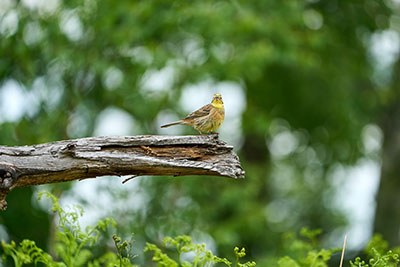
- About Us
- Wellbeing
- Hunger
- Sustainability
- ED&I
- People
- Reporting
- Home
- >
- Sustainability
- > Biodiversity
Biodiversity
Biodiversity describes our planet’s rich variety of life, from species to ecosystems. To produce the food we need to thrive, agriculture relies on diverse plants, animals and even microbes in healthy soils.1 Due to climate change, habitat loss, agriculture practices and other causes, biodiversity is deteriorating worldwide. Biodiversity appears in many ways in our food system, from the diversity of crops that farmers plant, to wildlife habitat on farms, to thriving ecosystems.
As a global food company, we recognize our responsibility to help maintain the health of our planet and our food systems. We continue to evaluate how we can play a role. As part of our commitment to support farmers and agronomists, we develop programs implementing practices which promote biodiversity around the world.
We incorporate biodiversity into our initiatives. For example:
- Organic farming - Our Kashi® brand continues to help U.S. farmers transition more than 10,000 acres from conventional to organic farming through its Certified Transitional program.
- Cover crops - We partner with farmers in Australia, Madagascar, Spain, multiple U.S. states, and the U.K. to encourage growing cover crops to help diversify the crops in farmers’ rotations, and help build healthy soils where microbes, earthworms and other soil species can thrive.
- Protecting forests - We’ve worked with our vanilla supplier, Symrise, to train vanilla farmers in Madagascar in alternatives to slash-and-burn practices, which helps to protect ecosystems in one of the world’s biodiversity hot spots.
- Responsibly managing pests - Projects in Argentina, Ecuador, India, Madagascar, Mexico, Spain, the U.S., and the U.K. have directly trained farmers in integrated pest management, alternatives to synthetic pesticides, and other strategies to manage crop pests while minimizing impact to people and planet, including beneficial insect species.
In 2022, Kellogg launched a three-year pilot program to bring back the yellowhammer bird, an iconic farmland bird under threat in the U.K. due to fewer food sources and depleted nesting habitats. Kellogg is working with British farmers who supply wheat for their cereals to implement practices, such as create nesting habitats and introducing winter bird food mixes, to help increase the population of the bird on the participating 150 hectares of wheat fields.
[1] http://www.fao.org/3/CA3129EN/CA3129EN.pdf
 |

